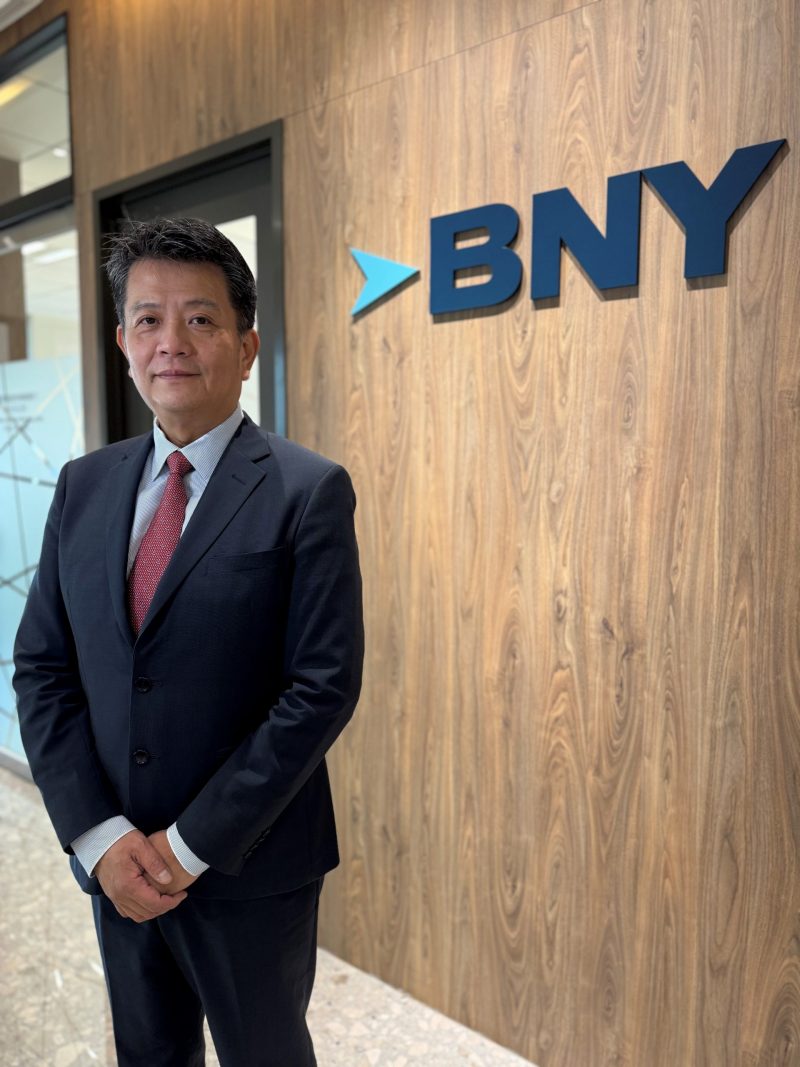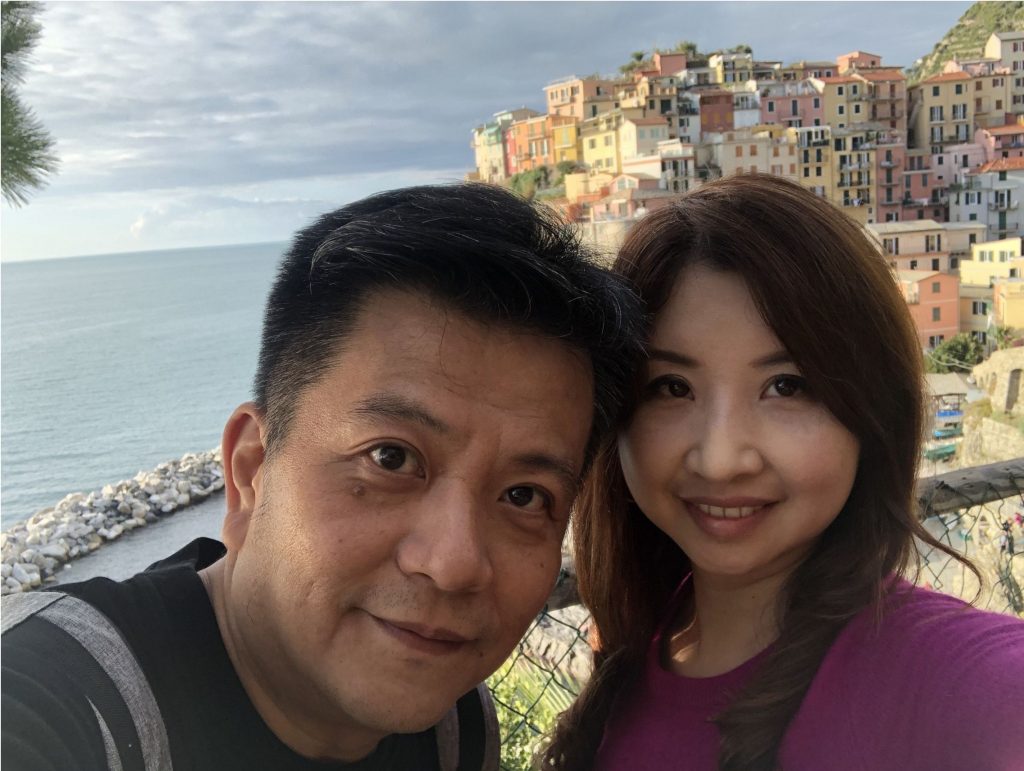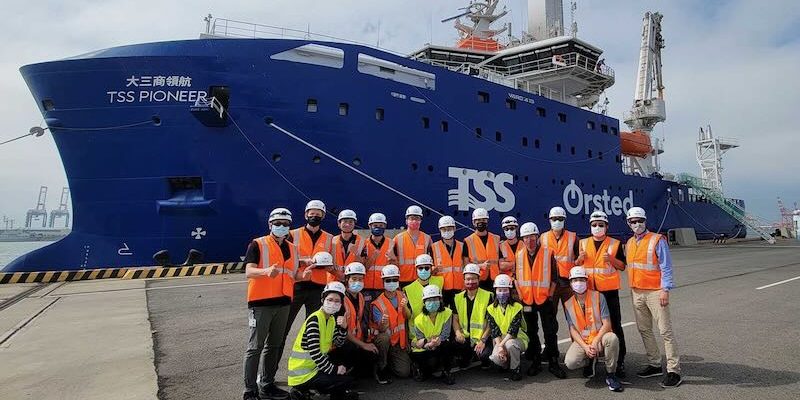
Michael Huang brings more than three decades of banking experience to his role as Taiwan Chief Executive, with a career that bridges both domestic and international markets. Having held leadership positions at institutions such as CTBC Bank, the Industrial Bank of Taiwan, and Standard Chartered, Huang’s expertise spans corporate banking, strategic growth, and digital innovation.
Huang has been at the forefront of several financial technology initiatives. His career milestones include launching Taiwan’s first internet banking platform and pioneering a groundbreaking digital exchange in Brunei. Since assuming his current role at BNY in Taiwan in 2020, he has focused on navigating the complexities of a rapidly globalizing financial landscape while delivering tailored solutions to meet the evolving needs of local clients.
TOPICS Associate Editor Alex Myslinski sat down with Huang to discuss his leadership philosophy, the future of Taiwan’s financial industry, and how BNY is shaping innovation in an increasingly interconnected world. An abridged version of their conversation follows.
What led you to your current role?
I joined the banking industry over 30 years ago as a management associate at CTBC Bank after graduating from a local business school with a master’s degree in finance. During my time at CTBC, I found that the organization fostered an environment that encouraged young talent to explore new ideas and provided the support needed to bring those ideas to life. This experience played a crucial role in shaping the strong sense of curiosity that continues to drive me today.
One of the most interesting experiences in my career was my last assignment at CTBC, serving as the CEO of its India operations. I spent two and a half years in India – a big change for someone who had never studied or worked abroad before. I still remember telling my reporting manager at the time that I wanted to take on an overseas assignment. I was given a choice between Indonesia and India, and I said that if I could succeed in India, I could handle anything.
After returning to Taiwan, I was invited by the founder of the Industrial Bank of Taiwan to draft its business plan and oversee everything related to application processes. Later, I joined Standard Chartered as the corporate banking head and oversaw its transaction banking. Five years later, I joined BNY as Taiwan Chief Executive.
How would you describe your leadership style? Is there a certain philosophy or principle that you follow?
Curiosity is central to how I lead. Staying curious allows me to continuously explore new and better ways to accomplish outcomes. I’m also a strong believer in being a team player with an inclusive approach. For example, when I worked in India, I brought practices from Taiwan to foster inclusivity and promoted curiosity. I would for example host listening and learning sessions with team members across businesses and levels of seniority. These sessions were designed for everyone to feel heard and included as well as to encourage open dialogue around our strategy and the way we worked. On International Women’s Day, I arranged for flowers to be distributed to all the female employees. It was a simple gesture, but it resonated deeply because it was uncommon in that context. It wasn’t about standing out – it was about treating my team in India the same way I would treat my team in Taiwan.
Integrity is another cornerstone of my leadership. In the banking industry, trust and integrity are non-negotiable. I lead by example, setting a vision for my team while encouraging them to work within a disciplined framework. I provide clear directions but allow them the freedom to determine the details so that every task aligns with our overarching goals.
I also strive to be a visionary leader. It’s important to articulate a clear path forward and persuade people to join you on that journey. This isn’t just about giving lip service – it’s about demonstrating what’s possible and inspiring others through action.
How does BNY Taiwan tailor its services to meet the specific needs of Taiwanese clients, especially in an interconnected global economy?
Taiwan’s financial landscape has evolved a lot, driven by globalization and the increasing need for diversified investment strategies. Decades ago, the Taiwanese economy was heavily reliant on trade finance and related services like payments and collections. But as the country’s wealth grew, the focus shifted to wealth management and asset diversification, both domestically and abroad. Taiwanese businesses and individuals began exploring opportunities to expand globally, whether through manufacturing footprints in other countries or investing in international markets.
BNY’s global network, which spans over 30 markets, enables us to support clients wherever they wish to operate or invest. For example, we assist with payment services in different currencies and support trade finance for businesses expanding internationally. We also provide access to global markets, helping clients diversify their portfolios and maintain robust investment strategies. For corporate clients, we facilitate fundraising in international markets, leveraging our expertise and presence in key financial hubs.
Digitization also plays a critical role in tailoring our services to meet client needs. By integrating advanced technologies and system architectures, we enhance efficiency and connectivity, enabling seamless operations across borders. This focus on innovation ensures that our clients – whether financial institutions, government entities, or individuals – can adapt to the demands of a globalized economy.
What trends do you think will define the direction of banking over the next decade?
The idea that “banking is dead” has gained traction with the rise of e-services. I don’t think this means banking itself is obsolete – it’s evolving. Trustworthiness, integrity, and resilience are fundamental aspects of banking that make physical interactions an immovable part of the client experience.
In today’s financial world, digitization is a major trend. At BNY, we strive to be the best partner for our clients during their transformation. Digitization also brings innovation, with fintech solutions and technologies like AI and machine learning playing a significant role. These advancements will help both internal operations and client-facing services by enhancing decision-making and operational efficiency.
Another trend shaping the banking industry is the increasing importance of data. Accurate and timely data is essential for decision-making, both for banks and clients. We work closely with clients to build robust system architectures that combine data flows to help them advance to the next generation of banking. We’ve adopted technologies like AI and machine learning to manage and utilize data effectively to make sure our clients can make informed decisions.
Wealth creation and transfer in Asia is a defining trend. Asia is leading the way in wealth accumulation due to the region’s trade flow and economic growth. The United States has traditionally been viewed as the source of wealth, but now the global supply chain has shifted, making Asia a booming hub for wealth creation. Banks will need to provide tailored solutions that address the unique opportunities and challenges in the region.
What advice would you give to aspiring leaders in Taiwan’s banking and financial services industry?
I would emphasize the importance of passion and innovation. Passion is the driving force that keeps you motivated, even during challenging times. When you genuinely care about what you do, it becomes easier to navigate the complexities of the industry.
Innovation is equally critical. As I’ve learned over the years, banking is not just about routine operations – it’s about finding new and better ways to serve clients and adapt to an ever-changing market. During my career, I’ve had opportunities to pioneer projects like creating the first e-procurement platform in Asia and Taiwan’s first internet banking platform. To succeed with these initiatives, I needed to stay curious and be willing to step out of my comfort zone.
I also believe that aspiring leaders need to be proactive in looking for opportunities for growth. Don’t be afraid to raise your hand and ask for challenging assignments. Early in my career, I displayed a desire to push myself beyond my comfort zone, which tested my resilience and adaptability – traits that are crucial in this profession.
How do you like to relax and unwind in your spare time?
Every couple of years, I like to find something new and interesting to try. When I was in my 40s, I decided to revisit an old dream. I never learned to play an instrument properly as a child because my family cEvery couple of years, I like to find something new and interesting to try. When I was in my 40s, I decided to revisit an old dream. I never learned to play an instrument properly as a child because my family couldn’t afford music lessons. At one point, I was selected to play the cello in elementary school, but I had to quit after a month due to financial constraints. So later in life, I decided to pick up violin and committed to weekly lessons with an instructor. My teacher, a young and strict sophomore, made sure I practiced diligently – sometimes even using her bow to tap me when I made mistakes! After 10 years of practice, I became so proficient that the cram school owner wanted to hire me as a teacher.

My wife and I also love traveling. We like not only the travels themselves, but also the process of organizing and preparing for them. We thoroughly research everything and picture what the experience will be like even before we leave. These visits leave us with long-lasting memories, especially when they involve trying local food.
At the end of a long day, I also make it a habit to reflect on one or two positive things that happened during the day to stay motivated and approach each new day with energy. Even during challenging times, I find small successes or progress to focus on. People often tell me that I radiate positivity, and I believe that energy comes from consciously finding and holding onto small wins.





